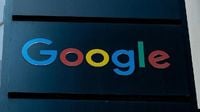On September 5, 2025, the European Union sent shockwaves through the global tech industry by slapping Google with a staggering 2.95-billion-euro fine—just shy of $3.5 billion—for abusing its dominance in the digital advertising market. The move, announced by the European Commission, marks the fourth time Brussels has sanctioned the tech giant with a multibillion-euro penalty in an antitrust case, further raising the stakes in an already tense transatlantic relationship.
The EU’s decision centers on Google’s alleged practice of giving its own ad exchanges preferential treatment over those of rivals, a move regulators say stifled competition and harmed publishers, advertisers, and, ultimately, consumers. "Today's decision shows that Google abused its dominant position in ad tech, harming publishers, advertisers and consumers," said Teresa Ribera, the European Commission's top antitrust regulator, in a statement reported by CGTN. The Commission also ordered Google to stop these practices, signaling a new level of assertiveness in its ongoing battle with Big Tech.
The fine is part of a broader series of antitrust actions against Google, bringing the company’s total liabilities in Europe to roughly 10 billion euros. According to EMarketer, Google is projected to earn approximately $205.04 billion in digital ad revenue in 2025, with $171.72 billion coming from global search advertising and $33.33 billion from display ads. Despite these eye-popping numbers, the EU’s latest penalty is the second-highest ever imposed on Google for alleged abuses of dominance, and the largest for its activities in the advertising technology sector.
Google, for its part, has vowed to fight the ruling. Lee-Anne Mulholland, the company’s vice president for regulatory affairs, argued that the bloc’s claims impose an unjustified fine and would hurt thousands of EU businesses. "The charges would make it hard for businesses in the bloc to generate income," Mulholland stated, as reported by Cryptopolitan. The tech giant plans to petition the EU’s fines, maintaining that its practices do not violate European competition laws.
Not everyone in Europe is satisfied with the Commission’s approach. The European Publishers Council, a vocal critic of Google’s dominance in the adtech market, argued that the fine alone is not enough to fix what it calls Europe’s "broken" digital advertising sector. Angela Mills Wade, the council’s executive director, believes that Google will continue to absorb such penalties as just another cost of doing business, maintaining its powerful grip on the market.
The EU’s latest move is part of a broader crackdown on U.S. tech giants, with other companies also feeling the heat. President Donald Trump was quick to respond, framing the fine as part of a pattern of unfair targeting of American firms. "Europe today 'hit' another great American company, Google, with a $3.5 billion fine, effectively taking money that would otherwise go to American investments and jobs ... Very unfair, and the American taxpayer will not stand for it!" Trump declared on his Truth Social platform, as cited by CGTN and Cryptopolitan.
Trump didn’t stop there. He accused the EU of discriminatory actions, pointing out that Google’s parent company Alphabet has faced a total of $16.5 billion in fines from the bloc after settling what he called $13 billion in "false claims." He also noted that Apple has faced a $17 billion fine, which he argued should be refunded. "As I have said before, my administration will NOT allow these discriminatory actions to stand ... I will be forced to start a Section 301 proceeding to nullify the unfair penalties being charged to these taxpaying American companies," Trump warned, referencing a powerful trade tool that allows the U.S. to impose retaliatory tariffs or other measures.
The threat of a Section 301 proceeding is not an idle one. Trump has previously invoked such probes, notably against Brazil in response to political developments there. Earlier this month, he warned that he would impose levies on countries that introduce digital taxes, rules, or regulations targeting U.S. organizations. The issue has become a recurring flashpoint in trade negotiations between Washington and Brussels, with U.S. tech executives raising concerns directly with the White House.
On September 4, 2025, the day before the EU’s announcement, top U.S. tech leaders including Alphabet’s Sundar Pichai, Apple’s Tim Cook, and Meta Platform’s Mark Zuckerberg reportedly discussed digital taxes and fines with President Trump during a dinner at the White House. According to Trump, these executives complained about the Commission’s charges, underscoring the growing frustration among Silicon Valley’s elite over what they see as an increasingly hostile European regulatory environment.
From the European perspective, however, the fines are about restoring fairness to a market dominated by a handful of powerful American firms. EU antitrust chief Teresa Ribera has repeatedly argued that public entities must act to curb the influence of dominant players, especially when markets fail to deliver equitable outcomes. "The space requires a level playing field for every party to compete on equal terms and for citizens to have a right to choose," Ribera said, according to Cryptopolitan.
The stakes extend far beyond Google. Trump’s warning that he may introduce a Section 301 proceeding signals the potential for a broader trade conflict between the U.S. and the EU. Such a move could lead to retaliatory tariffs or other economic measures, escalating tensions at a time when both sides are already grappling with disagreements over digital regulation, taxation, and market access.
Meanwhile, Google’s vow to appeal the decision sets the stage for a lengthy legal battle, one that could shape the future of digital advertising and competition law in Europe for years to come. The tech giant’s deep pockets and legal firepower suggest that the story is far from over, and the outcome could have major implications for how global tech companies operate in the European market.
As the dust settles, the question remains: Will the EU’s tough stance on Big Tech encourage a more competitive and open digital marketplace, or will it trigger a transatlantic trade war that leaves both sides worse off? For now, one thing is clear—neither Brussels nor Washington shows any sign of backing down.







